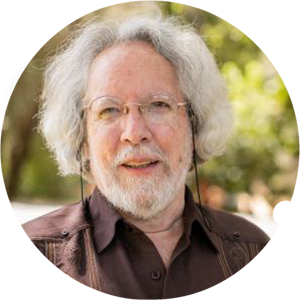Warm regards as this New Year continues to unfold. I'm writing to update you briefly regarding my recent participation at the U.S.-Mexico border in the launching of a new initiative called "Witness at the Border," which targets the Trump administration's continuing negation of the right to seek asylum through the so-called "Remain in Mexico" policy (known more formally as the "Migration Protection Protocols" or MPP), in collaboration with the Mexican government (please see links provided below for more information).
This policy (first adopted in December 2018) has resulted in over 60,000 asylum seekers (primarily from Central America, but also from Cuba, Haiti, sub-Saharan Africa, and Asia) being returned to Mexican territory indefinitely to await U.S. processing of their asylum claims. As of July 2019 the administration's policy is to further restrict the possibility of asylum to a handful of exceptional cases by requiring asylum seekers to file their claims in the country in which they first arrive ("safe third country"). As many of you know, similar "outsourcing" or border externalization policies have also been regularly implemented in equivalent contexts such as the Euro-Mediterranean region and the environs of Australia and New Zealand, with convergent results.
Thousands of these asylum seekers, including many families and children, have established improvised camps on the Mexican side of the border at sites such as Matamoros, at the edge of the Rio Grande, and across the river from Brownsville, Texas. Approximately 3,000 people inhabit this camp, including about 500 children between the ages of five and fifteen. Similar camps have been established at other key border crossings (such as Ciudad Juárez, contiguous to El Paso), but the camp in Matamoros is the largest thus far.
Migrants in these camps do not receive any humanitarian assistance from either the U.S. or Mexican governments, nor from those of their countries of origin, which are all co-responsible for their plight. The Mexican government refuses to recognize their status as refugees. Without this recognition the engagement of the UN High Commissioner for Refugees (UNHCR) cannot be activated. This vacuum in the provision of urgently needed humanitarian assistance is filled by local, national, and international volunteer humanitarian workers, but there are never enough to address all of these needs.
Mexico is not in any case in any position to provide effective protection to highly vulnerable migrants (especially women and children) in the very dangerous border region, as the country continues to unravel amid persistent violence related to the U.S.-promoted "drug war". Migrants in transit have long been systematically persecuted on Mexican territory due to collusion between Mexican authorities and drug cartels which seek to exploit them through extortion, smuggling, trafficking, and forced labor. The number of Mexicans who are themselves seeking asylum at the border due to the ravages of this conflict continue to soar. At the same time thousands (for example the ongoing migrant caravans) continue to flee related conditions of violence and dispossession in Central America and elsewhere, including the effects of climate change.
"Witness at the Border" seeks to draw attention to, and raise public consciousness about, these issues. An indefinite vigil began on January 12 at the entrance to the Gateway International Bridge which connects Brownsville and Matamoros. This has included our observance of MLK Day, and reception and accompaniment of a delegation of 17 concerned members of congress organized by the Congressional Hispanic Caucus (see here). Over 100 people from 30 states were present at this site at one time or another during the 8 days I was there, plus many local participants from both sides of the border. Our hope is to sustain a continuing physical presence at this site and to draw additional support and solidarity from colleagues and concerned people of conscience like you, as well as financial support for this initiative, to the extent possible. Our next major mobilization of supporters is on Feb. 14, in the spirit of "Love, Not Hate" (see here).
Please share this information with your contacts and come join us if possible through your physical presence and/or your spiritual, political, and financial support.
You can support "The Witness Fund" here, and also here.
For further information about the policies I've referenced here, please see:
A specific humanitarian project you may be interested in supporting, that I visited regularly while there, is the "Sidewalk School for Children Asylum Seekers" See NPR's story on it here and a local special report on it here. Sidewalk School for Children Asylum Seekers is directed by an extraordinary young woman named Felicia Rangel-Samporano (you can donate here).



